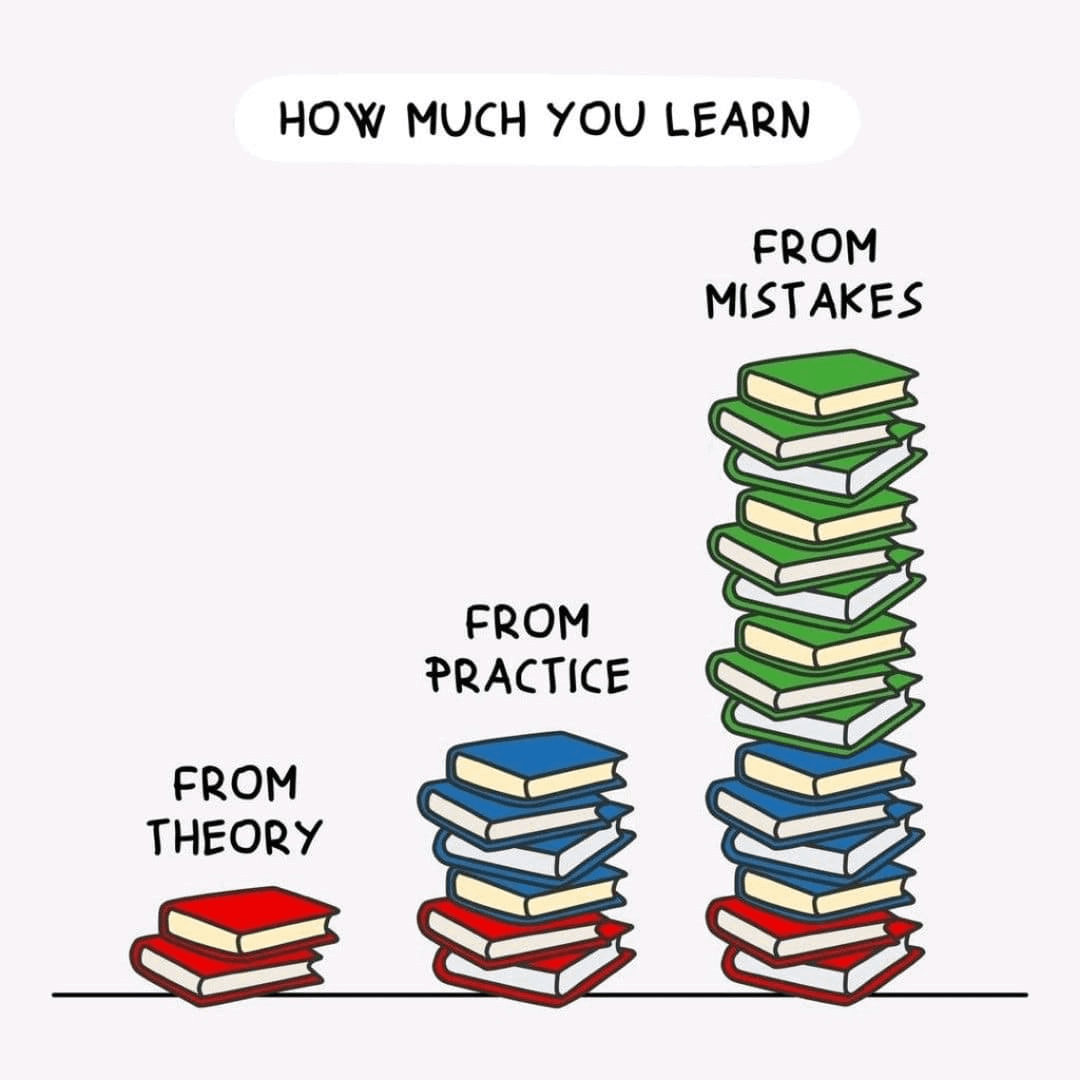Your Language Learning Personality Strengths
The other side of your language acquisition personality
Welcome, aspiring polyglot! The other day we went over a new idea being explored, that of language learning personalities. Last time we covered the weaknesses or struggles many people face and what that might mean. This time we are going to look at the strengths and the ways you can make the most of yours.
Over time these things will be developed further and I encourage you to leave feedback so that I can reiterate with it. Eventually, the goal is going to be having a streamlined process that will allow you to seamlessly integrate these concepts into your second language acquisition.
What are language learning personalities in second language acquisition?
As a general idea, the language learning personalities are the mannerisms, behaviors, and habits you either consciously or subconsciously act out whenever you sit down to study. These are things that will happen with or without your active attention. Learning to take advantage of your strengths and mitigate your weaknesses will enhance and accelerate your second language acquisition.
Keep in mind these things can change with time as you improve and work through your new language. However, if you try to fight against these things you may end up getting frustrated. Understanding yourself can help you build and maintain momentum to carry the day when you are feeling stagnant.
General Weaknesses
As far as weaknesses go, we will focus on for these personality types break down into two areas. The learning process or approach to language studies and the study materials or comprehensible input difficulties.
ADHD
Passive/Active Only
No Time
"Staying Busy"
Tomorrowers
Perfectionism
Fear of failure
Lack of resources
Reading issues
Writing disdain
Muted
Lost in translation
For an in depth look at all of the weaknesses and what those look like, be sure to check this article on the topic:
What’s your language learning personality?
Welcome, aspiring polyglot! As often as doing what works for you is mentioned around here, it would probably be helpful to have a few ideas from which to choose. When pondering this, the idea of potential language learning personalities came up. After thinking on it for some time, I think I fleshed it out enough to be helpful. If you do not see somethin…
Maximizing your strengths
This is what the strengths look like and how you can implement them in conjunction with various second language strategies to maximize the return on your time. Take time to really ask yourself some of the questions below. If you want to make the most progress you need to be sincere with yourself in this evaluation. That said, it is possible that these overlap or are not as specific as they could be. Should you feel that way, please leave some feedback for me in the comments.
Strengths: Learning Process and Approach
As we did with the weaknesses, the strengths will be split into two parts. The first of which is going to be the strengths associated with the learning process and approach. That is to say, what environment and learning style work best for you. Are you a kinetic learner? Do you learn best with audio? Does working alone work for you or do you need to be working with at least one other person? Ask yourself these questions, and I will include more, as you go through these to nail down your potential strengths.
Contemporaneous practice
Those who enjoy the approach of contemporaneous practice are always looking for opportunities to get exposure to their target language. Do you look for new words in a menu when you are at a restaurant? Have you found yourself repeating words under your breath to try and master the pronunciation? Do your ears perk up when you hear foreign languages in public? One of your strengths might be contemporaneous practice.
Group learner
Group learners tend to struggle when they sit down to study alone in their room. Reading is difficult without a purpose behind it and writing is almost never going to happen. Have you ever sat down to study and spent thirty minutes "preparing" things? Does it feel impossible for you to sit down and get some written language onto paper? Is it easier for you to show up when there is a group of people waiting for you? Ask yourself these questions to determine if you are a group learner or a solo learner.
Solo learner
Solo learners tend to find great joy in reading and writing. At first this can be tremendously advantageous but it can later lead to issues escaping the Silent Period. Do you find yourself getting lost in books in any language? Is keeping a journal something you enjoy doing? Does speaking to people fill you with dread? Being a solo learning can be a strength. Depending on your answers to these questions, you will need to do different things to maximize your strengths.
Grammatical structures
This is one of the more prominent splits in language learning approaches. As most know, I happen to believe that vocabulary is king in learning a new language. If you want to read more about the reasoning behind that, check out this article:
The Key to Language Learning: Vocabulary
Welcome, aspiring polyglot! One of the age old debates amongst linguists and language enthusiasts around the world is whether vocabulary or grammar is ultimately more important when thinking about second language strategies. While both certainly have their place, it is my personal belief that vocabulary is far more important than grammar and in this post I will attempt to explain why.
For those who find themselves on the other end of the spectrum, grammar structures can offer plenty of comfort and there is value in going down this path. Do puzzles intrigue you? Is nitpicking grammar something you find yourself doing in your native language? Do you notice grammar mistakes in books you read? Have you found yourself frustrated with flashcards and sitting down to memorize new words? Remember to be earnest in your answers to these questions. These are not the only ones, but they should give you a good idea of what will work for you.
Vocabulary charts
On the other side of the grammar debate lies vocabulary. If language acquisition is like putting a puzzle together, then vocabulary words are the pieces. Grammar structures are how those pieces fit together. You cannot have one without the other, but the more pieces you have the more you have to work with when trying to put the picture together.
Does struggling to adequately express yourself frustrate you to no end? Is making sense less important than expanding your competencies? Do you enjoy reading because it allows you to learn new words and ways to express yourself? Whether you choose vocabulary, grammar, or a mix of the two, knowing which you enjoy more is highly beneficial.
Ample time
Some people have absolutely no time in their schedule. Those who have ample time to dedicate to the development of language skills is a strength. Knowing how to make the most of your time is how you take advantage of this. As great as having ample time for language acquisition is, it can be a double edged sword. If you approach things incorrectly, you might end up wasting time being busy rather than being productive. You will need to focus to ensure you can be efficient with your time.
Local native speakers
The people who are fortunate enough to live in areas where they have access to local native speakers have probably the greatest advantage here. Having people you can go to and practice with day in and day out will make things easier for anyone this fortunate. Getting past the language barrier is far easier when you have people around you who can make corrections for you. If you want to get the most out of this advantage, though, you need to be unafraid.
Shameless
While having native speakers around is the greatest advantage that is out of most people's immediate control, being shameless is the greatest advantage that you can control. Listening skills and written language can be practiced without fear of making mistakes in front of other people. At the end of the day, when you are starting out your language output is not always going to be making sense. Being unafraid to make mistakes and speak without shame will give you an advantage few will ever enjoy.
Obsessive
Being obsessive is another strength that you can control and develop over time. If you can get to a place where immersing yourself in the language is what you poor most of your free time into, then it will be easy to keep coming back day in and day out. Mainstream classrooms really do not do well at immersion and you can solve that problem for yourself with enough localized immersion. If you want to see how to make the most of an obsessive personality, check out this article:
Hacks for Learning a Language Through Immersion Without Breaking the Bank
Welcome, aspiring polyglot! For those of you who have been following along on Twitter (2000+!!!) you will have seen me use the term localized immersion. I have never really explained what it means, though, so that is what I will be doing here. Localized immersion learning is the best way to learn one outside of being actually immersed in a country where…
Again, some of these will crossover with the comprehensible input strengths, but more importantly many of them will compound. Pairing your innate learning abilities with stimulus that is conducive to your success will enhance and accelerate your second language acquisition.
The most productive language learners are always finding ways to maximize their time. As you age, efficiency becomes more and more important in all facets of life. Second language acquisition is no exception to this rule. With that, here are the stimulus/input strengths:
Strengths: Comprehensible input and Study Material
Beyond the behaviors and approaches to language learning, there are inherent strengths in your choice of comprehensible input and the study material you spend the most time around. Choosing wisely in these areas is closely related with swift and complete second language acquisition. Usually in a public education setting, these things would be chosen for you and this causes many people to default to a subconscious process in choosing study materials in different languages.
Treating the choice of your language learning materials with the reverence it deserves will ensure you do not spend years bashing your head against the wall trying to master your target language. Be intentional and watch your language level increase at a consistent pace. That means thinking of everything you could do, not everything you have done.
Translator
There are an unbelievable amount of people who have fallen for the horrible advice that says direct translation is bad. Yes, it is something you eventually want to get away from, however it is also an extremely powerful tool when you are getting off the ground.
People how find themselves translating anytime they see a word that is not of their native language would do well to chase that feeling. Being able to direct translate things quickly can give you a little breathing room when it comes to full length conversations.
Resourceful
People who are resourceful will never want for material. Not only that, but they will find ways to get the language into their working memory. Resourcefulness does not end at finding resources in your target language. It continues on and includes solving problems and knowing how to find answers to your questions.
Those who are able to do this in their first language should have little to no issues doing it in their new language. Variety is important in this, different levels, different authors, different orators, different tempos, different settings. All of these things will make it easy to maximize this strength.
Bookworm
A love of reading will set you apart from your peers when it comes to second language acquisition. There are very few places you will get the exposure to new grammar structures and higher level vocabulary than immersed in the pages of a book. Reading comprehension is one of the more difficult components of second language acquisition to master. Spending your time reading new and more difficult literature in your target language will open many doors.
Loud mouth
Speaking other languages is difficult. Most people take way more time to begin to speak than they should and it is because they have had it drilled into them that mistakes are bad. However, it is exceedingly rare for people to speak even their first language without making at least a few mistakes. Some people will speak no matter how many mistakes they are making. These people will make the most progress relative to their language learning peers. It takes quite some time to unlearn bad habits, but over time almost anyone can become a loud mouth.
Dynamic input
Localized immersion is an incredible way to learn a new language. Dynamic input can make this better. If you are able to take your comprehensible input and turn into quality language output you will develop your second language skills with ease. Do you have a myriad of interests? Have you spent time working to develop skills across multiple domains? Does it make sense to you that anything you know how to do in your first language other people are doing in other languages around the world? If so, dynamic input might just be one of your strengths.
Full focus
The ability to focus is not something that many people have. If you are able to sit down and actually focus on your second language studies for an extended period of time you will be leagues ahead of your competition. This strength often leads to exercises that involve writing. At times people feel busy, but they really do not accomplish much. In a world where your time is limited, being efficient is an indisputable strength. All of the strategies in the world cannot help someone who spends more time planning than doing.
Getting the most out of your second language acquisition strengths is likely more important than mitigating your weaknesses. As you progress you will have less and less issues keeping your weaknesses in check to the point where they no longer hinder you at all. New skills take time to develop, but if you set up an effective strategy for yourself to commit things to your long term memory then the experience will be enjoyable.
Conclusion
The idea of a second language acquisition "personality" is still in its nascent state. Over time these will become more fleshed out and the long term plan with them is to change language acquisition forever. In the meantime, take these frameworks and add them to your language learning routine. You never know when one will just click with you and you will be off to the races. Do not hesitate to leave a comment if you think one of these is misplaced or if you think something more should be added. It is going to be a big year, walk into the next one fluent in a new language.
It is not impossible to learn a language fast, but if that is the goal it is imperative to understand that it will be difficult. Picking up a foreign language at any speed is going to be challenging. Leveraging your strengths and minimizing your weaknesses will play a large roll in facilitating this challenge.
It will still be difficult, but you can do difficult things and be great. So go do difficult things and become great. I will be here by your side endeavoring to do the same. I'll be here rooting for you and watching out for your successes in the meantime.
Eager for more Second Language Strategies?
For more content check out Second Language Strategies dot com or find me on Twitter or Instagram. If you are struggling to get speaking in your target language, get up to 55% off a Babbel subscription using this link. I look forward to seeing everyone’s progress in the months and years to come. Don't forget to check out the YouTube channel as well!

















I love your memes so much